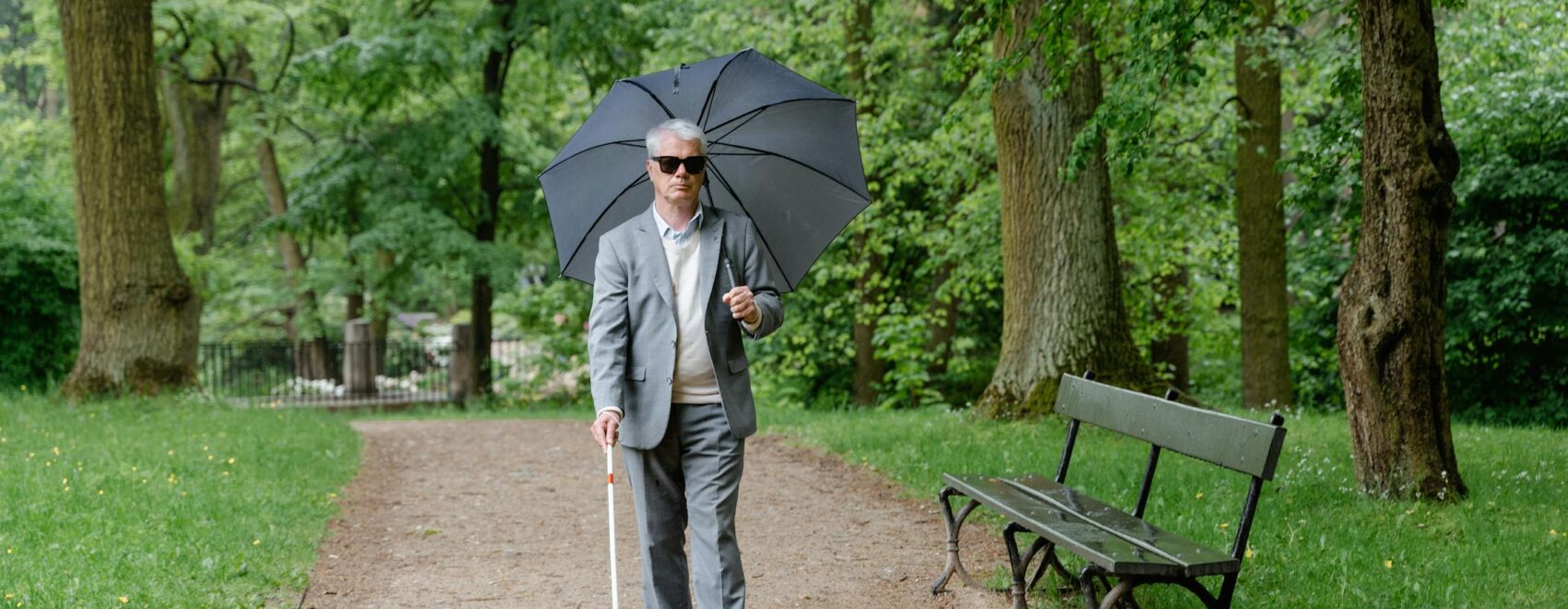Vision decline is a natural part of the aging process, and it happens due to changes in the structure and function of the eyes over time. As we age, the lenses of our eyes lose flexibility, making it harder to focus on nearby objects. The pupils may also become smaller and less responsive to light, making seeing in dim conditions or adjusting to bright light more difficult. Other age-related conditions, such as cataracts (clouding of the lens), macular degeneration (damage to the central part of the retina), and glaucoma (optic nerve damage), can significantly impair vision. Vision decline can impact seniors’ lives, affecting their independence, safety, and overall well-being.
Effects of Vision Decline on Seniors:
- Reduced Mobility: Reduced visual clarity or depth perception can make it harder to identify hazards, such as uneven or slippery surfaces, stairs, or unfamiliar paths, which can lead to an increased risk of trips and falls.
- Challenges in Daily Activities: Tasks like cooking, personal care, grooming, reading, managing medications, household cleaning, and organizing can become more challenging with vision decline. It can also affect senior’s ability to live independently.
- Social Isolation: Social isolation may arise as seniors withdraw from activities they once enjoyed or struggle to recognize faces, impacting their relationships and leading to loneliness.
- Emotional Impact: Vision impairment can greatly affect seniors emotionally, often leading to feelings of frustration, vulnerability, and grief over lost independence. Anxiety and depression can also become more prevalent as the fear of accidents and the challenges of daily tasks weigh heavily on their minds.
Tips for Seniors with Vision Decline:
- Regular Eye Exams: Early detection of conditions like cataracts or glaucoma can prevent further vision loss
- Proper Lighting: Bright, even lighting in the home can improve visibility
- Assistive Devices: Magnifiers, talking clocks, and screen readers can help with daily tasks
- Mobility Aids: Canes or walkers can provide stability to help avoid unexpected slips and falls
- Healthy Lifestyle: A balanced diet rich in vitamins A and C, regular exercise, and managing chronic conditions like diabetes can support eye health
How Just Like Family Home Care Can Help:
- Safety Improvement: Caregivers can organize the home to reduce fall risks and improve accessibility
- Personalized Care: Assistance with daily activities, mobility, and emotional support
- Adaptive Tools: Training seniors to use assistive devices and technologies
- Companionship: Helping seniors stay socially connected and engaged
Vision decline doesn’t have to mean losing freedom —there are ways to adapt and reclaim confidence in movement and activity. Just Like Family Home Care is available to provide various services to help seniors with vision impairments. Please get in touch with us for more details.

